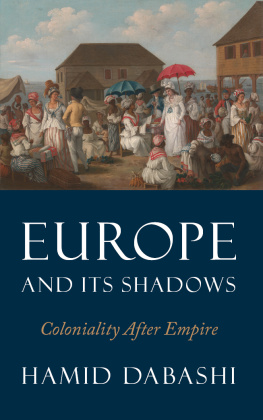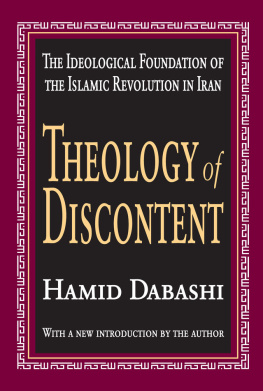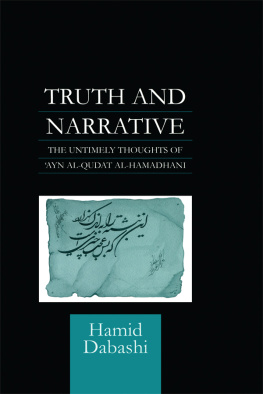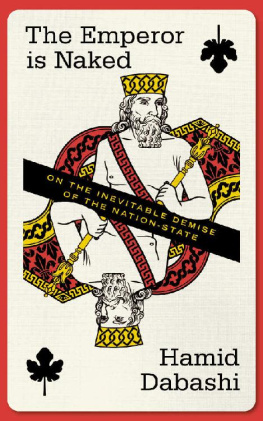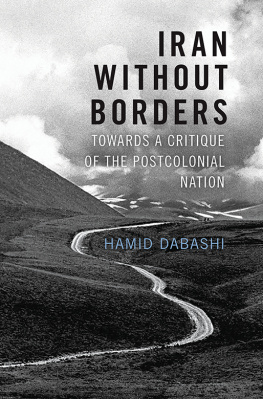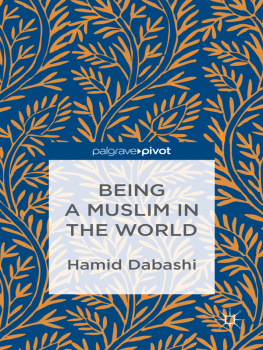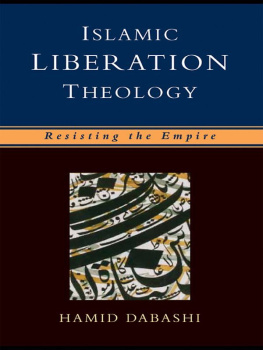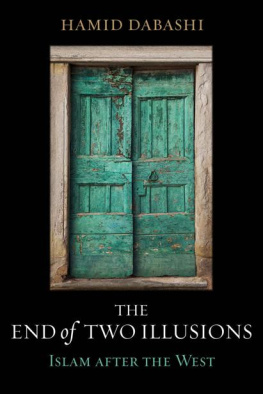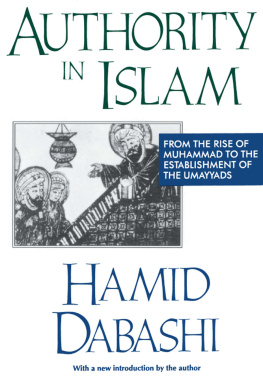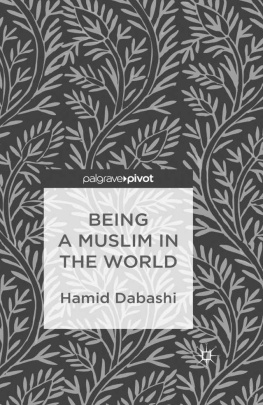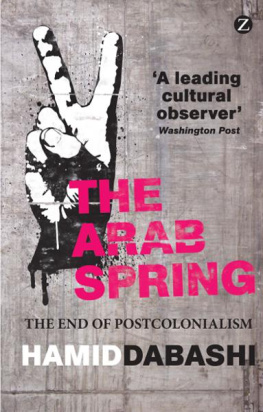Contents
Guide
Europe and its Shadows
Europe and its Shadows
Coloniality after Empire
Hamid Dabashi

First published 2019 by Pluto Press
345 Archway Road, London N6 5AA
www.plutobooks.com
Copyright Hamid Dabashi 2019
The right of Hamid Dabashi to be identified as the author of this work has been asserted by him in accordance with the Copyright, Designs and Patents Act 1988.
British Library Cataloguing in Publication Data
A catalogue record for this book is available from the British Library
ISBN 978 0 7453 3841 5 Hardback
ISBN 978 0 7453 3840 8 Paperback
ISBN 978 1 7868 0398 6 PDF eBook
ISBN 978 1 7868 0400 6 Kindle eBook
ISBN 978 1 7868 0399 3 EPUB eBook
This book is printed on paper suitable for recycling and made from fully managed and sustained forest sources. Logging, pulping, and manufacturing processes are expected to conform to the environmental standards of the country of origin.
Typeset by Westchester Publishing Services
Simultaneously printed in the United Kingdom and United States of America
For
Ismael Nashef and Ayman El Desouky
From the River to the Sea
Contents
Acknowledgments
This book has been brewing in me for quite some time, and David Shulman, my editor at Pluto, has been the main engine behind my writing it. I am grateful to him for seeing this book through the labyrinth of my commitment to write it and his determination to publish it.
Three anonymous reviewers (I do not know who they are) read my proposal of this book and wrote detailed, at times deeply insightful, critical comments. Their collective wisdom vastly improved what you are about to read. I am grateful to them. Their critical thoughts helped me shape the trajectory of this book.
I wrote much of this book while vacationing with my children in Ocho Rios in Jamaica. Sitting at a beach where my children swam with dark-skinned children like them and their parents against the beautiful blue of the Caribbean Sea was the apt environment for the history that informs this book. As I wrote this book, I could see, in my minds eyes, the tall shadows of wandering European ships roaming these surrounding seas, mapping the colonial conquests of these islands. There, at the center of my childrens universe, as they swam and played water polo with their brothers and sisters, I listened to Bob Marley, wrote this book, and counted my blessings.
I wrote the final pages while on sabbatical from Columbia, visiting Doha Institute for Graduate Studies in Doha, Qatar, where I am surrounded by my dearest and closest friends and colleagues from across the Arab world, teaching students from Morocco and Tunisia to Palestine and Iraq, some from the war-torn Syria and Yemen. We are all here thanks to the visionary institution-building tenacity of a towering Palestinian intellectual Azmi Bishara. I call this place Hadiqah al-Ulama, Garden of Learned People. Under our watchful eyes, they just planted 80 olive trees in this garden. It is in the middle of nowhere and for us homeless minds, the center of universe.
Ocho Rios, Jamaica
Jamaica, New York
Doha, Qatar
SummerFall 2018
Introduction
Whats in a Word: Europe?
Aftabi dar miyan-e Sayeh-i
Like a sun in the midst of a shade
Rumi, Masnavi (1273)
Whats in a word: Europe? A continent, a global culture, a massive civilization, a state of being, a planetary imperial design, a nasty colonial concoction? Here, I look at Europe as a sign, a symbol, an allegory. I am far more concerned with Europe as a name rather than what it names. I am primarily looking at the sign Europe as a formalistlike a poet looking at a bridge, rather than an engineer looking at the same bridge. I am far more concerned with the form of the thing than the thing itselfof where it came from or where it is going. I dont think Europe is a thing in itself. Europe is a signlike a red light or a crossand I wish to read this sign through its signals, its affects, effects, affectations, echoes, reflections, resonances, shades, and shadows.
Europe is a mobile army of mixed metaphors. I borrow this phrase from Nietzsche about truth, and run with it toward and away from Europe, wondering what in the world it signals. We postcolonial folks around the globe are both victims and victors of this thing that calls itself Europe. We love it and we hate itwe are intimate enemies. We own it and are owned by it. We play with it, and it plays us. It disables us, and it enables us. We enable it and disable it. Because of Europe we have lost the worlds we knew as our own. Because of Europe we yearn to retrieve the worlds of our own. And because of Europe we oscillate between the world Europe has enabled and the world we wish to enable after-Europe.
Yes, Europe means imperialism, colonialism, militarism, conquest, and racism. Yes, Europe means science, technology, art, architecture, literature, and poetry, all concomitant with those nasty trajectories. Europe is good; Europe is evil. Europe is the strange case of Dr. Jekyll and Mr. Hyde. If he be Mr. Hyde, I say in this book, I shall be Mr. Seek.
Europe has never been just itself. Europe also lives and thrives and hides and resurfaces in its shadowssomewhere in between Europe and non-Europe, in between the West and the Rest. European colonialism may have ended here and there, but the condition of coloniality continuesnot just economically, but also culturally, epistemically, morally, imaginatively. Imperialism may have morphed, but the empire sustains its relations of powerwith a decidedly Euro-American signature. Nietzsche considered what he called ressentiment as the origin of Christian morality. In his gloss on Nietzsche, Max Scheler took issue with that characterization and proposed ressentiment not at the core of Christianity but at the roots of bourgeois morality that, in Schelers estimation, had begun taking shape from the thirteenth century forward.
But the condition of coloniality that European colonialism begat from almost the same time was always already transnational, global, planetary. Neither Nietzsche nor Scheler thought this part worth considering. Whether in Christian or in bourgeois moralities, or the transmutation of one into the other, and whether spread globally through the proselytizing missionaries of the former or the colonial conquests of the latter, ressentiment became translational transvaluation of values, as Nietzsche called it, and this mapped the moral fabric of a bourgeois Christian imperialism in which good Christians went around the world and did pretty nasty things, hanged twelve Native Americans to burn upside down, as Bartolom de las Casas tells us in A Short Account of the Destruction of the Indies (15421552), in honor of the Twelve Apostles of Jesus Christ. The Sermon on the Mount did not mean much to them at such momentsnor did those Christian bourgeois mass murderers wait for Nietzsche and Scheler to psychopathologize their sense of ressentiment. The shadow of Christianity, or the shadow of bourgeois morality at the roots of European empires, unbeknownst to both European philosophers, turned that ressentiment upside down, where the power of the Roman emperor was no longer coveted and thus transvalued, but where an even darker force faced the power of the emperor. We postcolonials noticed no celebration of weakness, no sense of ressentiment, no transvaluation of values, from our Christian conquerors, and we were all born and raised in the shade and shadow of that darkness.

